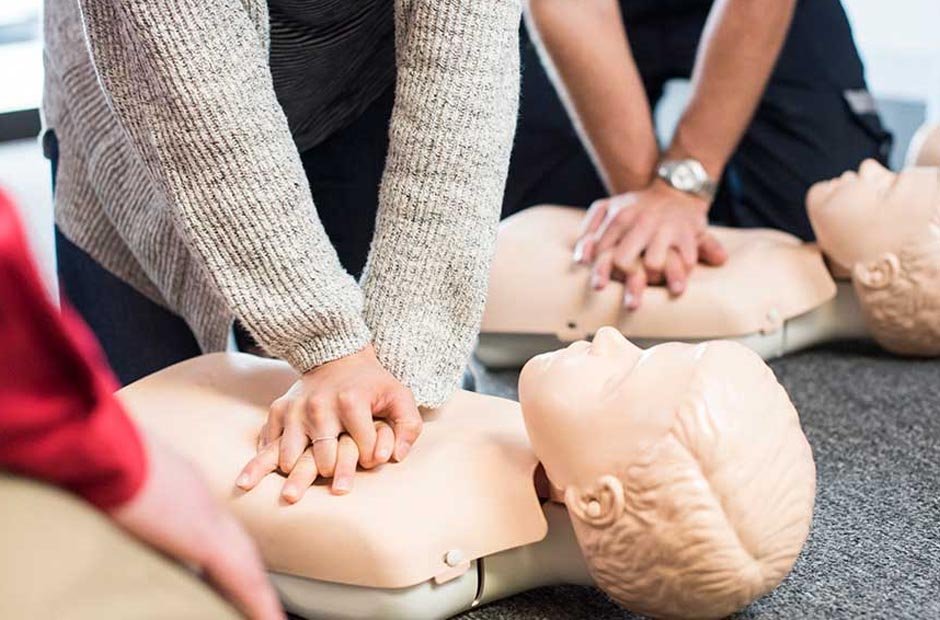Knowing how to perform Cardiopulmonary Resuscitation (CPR) can make all the difference when a life is in danger. Being able to perform CPR can turn an ordinary person into a potential lifesaver, but before that, they must be trained to do it properly.
So, if you’re currently thinking of entering a CPR course to get certified, this can help you. In this article, you will learn why CPR training is not just a good idea but something everyone should consider.
Immediate Response in Emergencies
In an emergency, the importance of a quick response cannot be overstated. Immediate action can mean the difference between life and death. But it’s crucial to recognize that CPR is not a substitute for professional medical care instead a bridge until help arrives.
Performing CPR within the first few minutes of a cardiac arrest significantly increases the likelihood of survival.
Increased Confidence and Preparedness
CPR training is more than just learning a set of techniques; it instills confidence in individuals to act decisively in high-pressure situations. Understanding the heart’s anatomy, recognizing signs of cardiac arrest, and practicing hands-on skills during training contributes to a heightened sense of preparedness.
Additionally, the psychological impact of feeling equipped to handle an emergency fosters a culture of responsibility and collective safety.
Improved Cardiovascular Health Awareness
Aside from the immediate application of CPR, training fosters a broader understanding of cardiovascular health. Individuals who undergo CPR training often become advocates for heart health awareness, promoting healthy lifestyle choices, and recognizing the early signs of heart-related issues.
CPR as a Universal Skill
Making CPR training available to everyone is very important. Community outreach programs, school projects, and training sessions at work are all part of efforts to make CPR education more accessible. These projects aim to break down social and economic hurdles so that everyone from any background can learn this life-saving skill. For those looking to enhance their skills in life-saving techniques, especially those living in the Vaughan area, obtaining Vaughan CPR certification is highly recommended. This training ensures you are well-prepared to handle emergencies, providing crucial assistance when needed.
Community Health and Responsibility
Community health involves collective responsibility for well-being. People who learn CPR become advocates for making neighborhoods healthier. Community-based CPR programs teach people how to save lives and make them feel responsible for each other’s health and safety.
Enhanced Emergency Response Team
Communities with a significant number of CPR-certified individuals essentially become their own emergency response teams. This enhances the speed of response and creates a network of individuals who can assist until professional help arrives. Understanding the relationship between individual preparedness and community resilience further underscores the importance of widespread CPR training.
Workplace Safety
Aside from fostering a safer work environment, CPR training is important in occupational health and safety. Certain professions, such as healthcare, childcare, and public safety, may require CPR certification. The Occupational Safety and Health Administration (OSHA) encourages employers to have trained responders in the workplace, recognizing the potential impact on employee safety.
Family and Home Safety
Ensuring family safety involves having a fire escape plan and being prepared for medical emergencies. Practical tips for implementing CPR awareness within households may include:
- Having emergency contact information readily available
- Ensuring accessible AEDs
- Involving all family members in CPR training
Communities with higher rates of CPR-trained individuals witness more positive outcomes in emergencies. Knowing that one’s actions can directly contribute to saving a life is a powerful motivator and a testament to the real-world value of CPR training.
Legal and Professional Advantages
In addition to the moral imperative, CPR-certified can have legal and professional implications. Some states have Good Samaritan laws that protect individuals who provide reasonable assistance during emergencies. Also, certain professions may require CPR certification as part of their qualifications.
How to Get CPR Certified
Obtaining CPR certification involves enrolling in accredited programs offered by organizations. The American Heart Association, for instance, provides a variety of courses catering to different needs, including Basic Life Support (BLS) for healthcare professionals and Heartsaver courses for the general public.
Right now, online courses are the preferred choice for flexibility, combining theory with hands-on skills practice to ensure comprehensive learning.
Learn CPR Today!
As you learn CPR, remember it can help with more than just crises. It affects neighborhoods, workplaces, and houses, making society safer and stronger. You can save lives and improve the world by getting your CPR certification. If you’re in Australia and considering this training, then check out the cpr course Melbourne offers and learn the basics of saving lives.
















